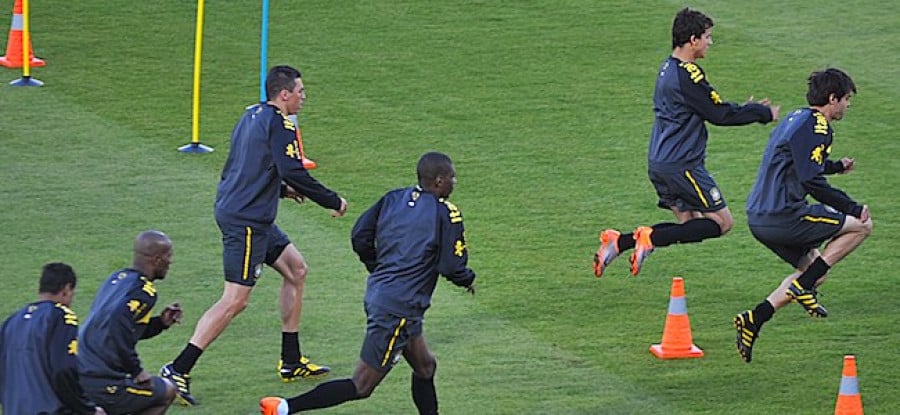The on-going football dispute over training compensation and player loans II: Dundee Utd -v- Club Athletico Velez

In an article published last year1, I considered the decision of the Court of Arbitration for Sport (“CAS”) in Panionios GSS FC v Paraná Clube2 (“Panionos”) concerning training compensation and player loans.
In that decision, given on 9 April 2013, the CAS appeared to suggest that, where one training club loans a player to another training club, the first training club loses its right to claim training compensation for any training and education it has provided before the loan takes place. CAS reached this conclusion through its interpretation of Annexe 4, Article 3.1 of the FIFA Regulations on the Status and Transfer of Players (the “Regulations”) and by relying on the case of Feyenoord Rotterdam v Club de Regatas do Flamengo.3
In the above article, I argued that this decision should be confined to its facts and not followed. I reached this conclusion because the Regulations do not provide that by loaning a player, a club loses its entitlement to training compensation. Further, the Feyenoord case did not concern the application of training compensation to a loan scenario, but rather to a scenario of sequential permanent transfers.
Moreover, my conclusion was based on the jurisprudence of the FIFA Dispute Resolution Chamber (the “DRC”), which states that a training club is entitled to training compensation for the entire period in which it has provided training and education to a player (save for any period the player has spent on loan to another club). Of course, the CAS exercises a supervisory jurisdiction over the DRC, but if it were correct that the loaning of a player prevented a training club from claiming training compensation for the period prior to that loan, training clubs would be discouraged from loaning young players to other clubs as they would lose out financially. In the author’s opinion, this cannot be the intention behind the Regulations.
Latterly, an award made by the CAS on 20 November 2013 in the case of Dundee United FC v Club Atletico Velez Sarsfield4 (“Dundee”) that is unpublished as yet but that has been bought to my attention appears to provide an alternative view on the interaction between the systems of loans and training compensation, reaching a conclusion contrary to the Panel in Panionios.5 This author suggests that the decision of the Panel in Dundee represents a better interpretation of the Regulations and one that recognises the interconnected importance of the systems of loans and training compensation to the development and education of young footballers.
Facts of the Dundee case
This case concerned Mr Damian Leandro Casalinuovo (the “Player”), a player of joint Argentinian and Italian nationality. The Player was registered from 11 March 2005 with the Argentinian football club Vélez Sarsfield (“Vélez”) as an amateur player and, from 25 June 2008, as a professional.
On 13 August 2008, Vélez loaned the Player to Atlético Platense (“Platense”). The Player returned to Vélez on 7 April 2009 and remained there until 30 June 2009 when he and Vélez mutually agreed to the termination of his employment contract. The parties entered into a termination agreement, which included a term stating that: “[b]oth parties declare that they have nothing to claim mutually by any concept or matter inherent to the employment contract that would bind both, and by this act is no longer applicable”.
On 3 July 2009, the Player’s International Transfer Certificate (“ITC”) was issued by the Argentine Football Association (the “AFA”) to allow registration of the Player with the Scottish side, Dundee United. Subsequently, on 20 July 2009, the Player was registered with Dundee as a professional player.
On 7 September 2009, Vélez sent a letter to Dundee requesting it pay training compensation in the total amount of EUR 400,000 for the Player. Dundee did not agree to this request.
The FIFA Dispute Resolution Chamber (DRC) Proceedings
On 14 October 2009, Vélez filed a claim with FIFA in which it claimed entitlement to the requested payment of EUR 400,000 plus default interest of 5% per annum starting from 21 August 2009.
On 18 December 2012, the DRC handed down its decision, determining that Dundee had to pay training compensation to Vélez for the period between 11 March 2005 and 20 July 2009.
On 27 February 2013, upon the request of both clubs, the DRC communicated the grounds of its decision. In respect of the disputed training compensation, it stated, among other things, as follows:
“In respect of Dundee United’s argument that due to the loan of the Player to Atlético Platense, the chain for calculating training compensation was broken and that it would only be payable for the period of registration of the Player with Vélez Sarsfield between 7 April 2009 and 2 July 2009, the FIFA DRC “(…) came to the firm conclusion that for the purposes of the provisions of the [FIFA Regulations] governing training compensation, the loan of a young player from his club of origin to other clubs does not interrupt the ongoing training period of the player and the obligation to pay training compensation arises only in case a player is transferred on a definitive basis, with the effect that, at that moment, the club which transferred the player on a loan basis to another club is entitled to training compensation for the entire period of time during which it effectively trained the player, however, excluding the period of time of the loan.” 6
“Consequently, and in light of the above-mentioned considerations, the Chamber decided to partially accept [Vélez’s] claim and decided that [Dundee United] is liable to pay training compensation to [Vélez] in the amount of EUR 230,000.” 7
To continue reading or watching login or register here
Already a member? Sign in
Get access to all of the expert analysis and commentary at LawInSport including articles, webinars, conference videos and podcast transcripts. Find out more here.
- Tags: Argentina | Argentine Football Association | Court of Arbitration for Sport (CAS) | FIFA | FIFA Dispute Resolution Chamber | Football | Governance | Italy | Regulation | Scotland
Related Articles
- The on-going football dispute over training compensation and player loans: Panionios -v- Parana
- Football player contracts - waiving training compensation
- Key case law on attempts to circumvent FIFA’s Training Compensation System
- Key sports law cases and developments to watch in 2015
Written by
Lloyd Thomas
Lloyd Thomas is an associate in Squire Patton Boggs’ Litigation department and is part of the Sports Law team based in its London office.

 Global Summit 2024
Global Summit 2024